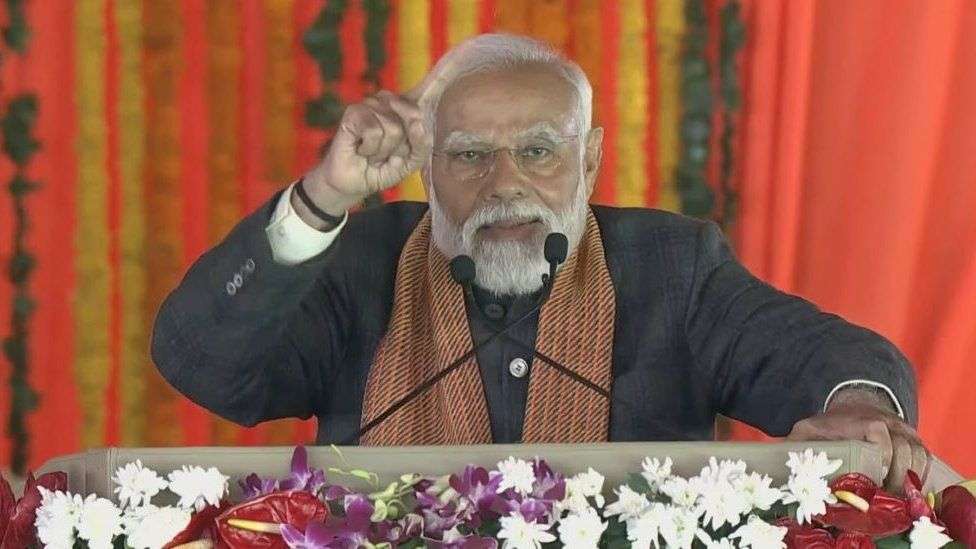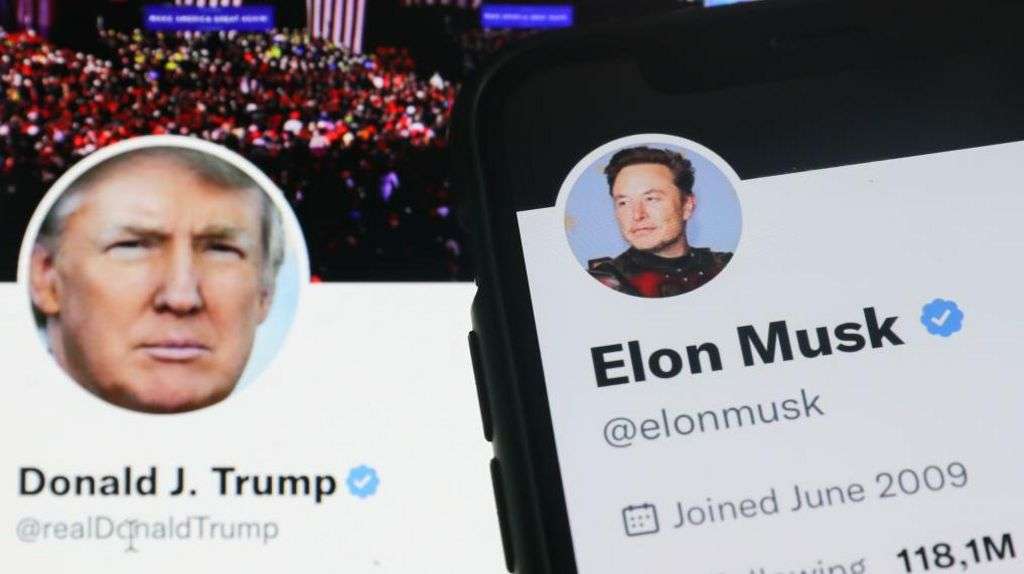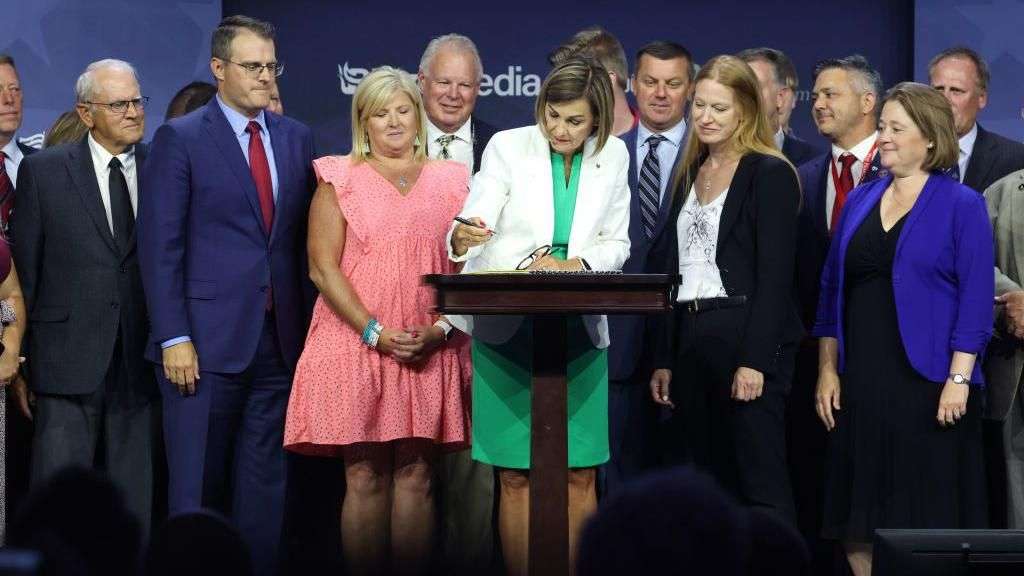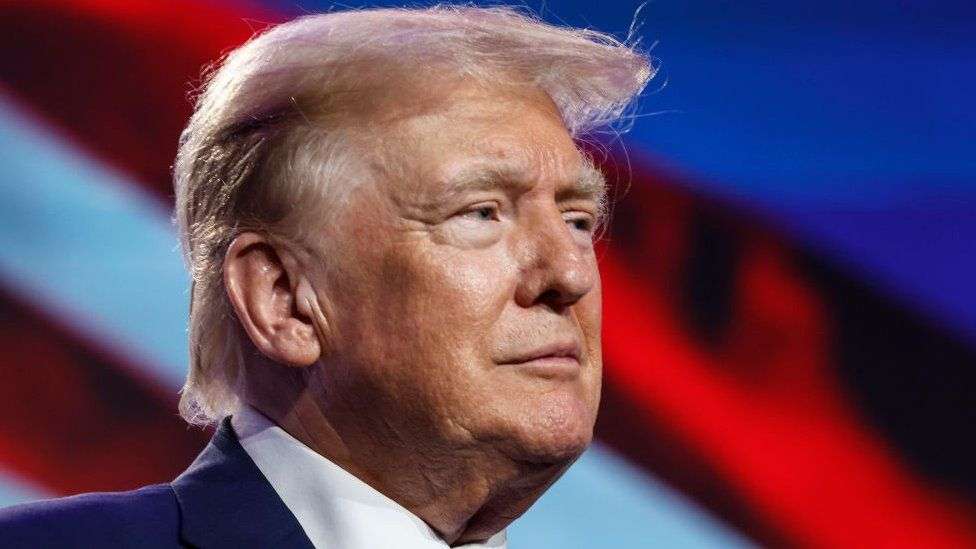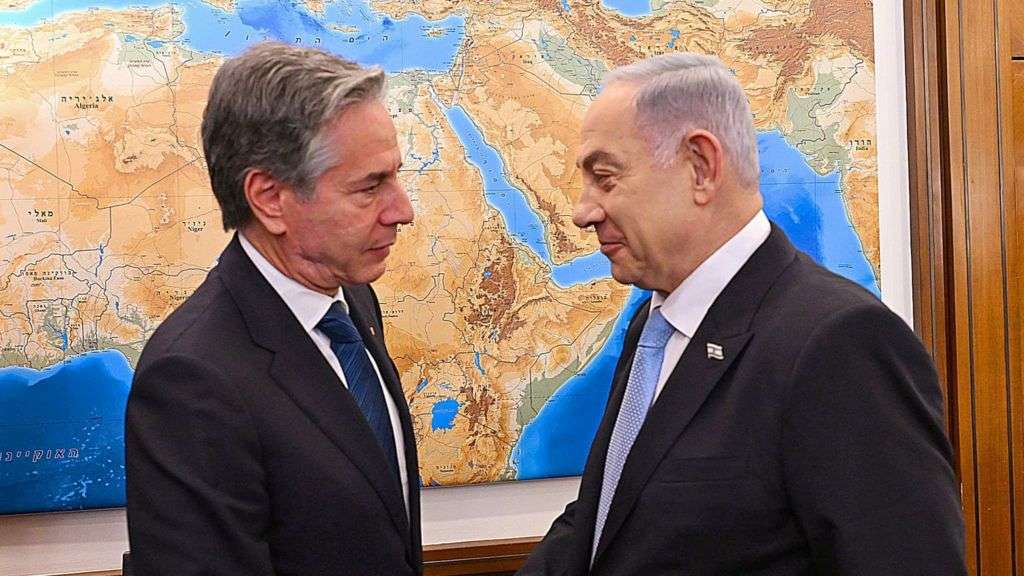Indian-administered Kashmir has been transformed economically since it was stripped of its semi-autonomous status, Prime Minister Narendra Modi has said.
Security was tight for his first trip to the Muslim-majority region since he made the controversial change in 2019.
"I am working hard to win your hearts," he told a rally in Srinagar, weeks before general elections are held.
An armed revolt against Indian rule in the disputed territory has claimed tens of thousands of lives since the 1980s.
Kashmir was divided after India and Pakistan gained independence from Britain in 1947. The two nuclear-armed states both claim the region in its entirety and have fought two wars over it in the decades since.
"People used to ask who will tour Jammu-Kashmir - now thousands are," Mr Modi told thousands of people packed into Srinagar's Bakshi stadium.
"Friends, Jammu and Kashmir is touching new heights of development because it is breathing freely now. This freedom has come after the removal of Article 370, which had been a barrier."
He announced projects worth 64bn rupees ($774m; £607m) to support local agriculture and tourism. His comments about Article 370 - a constitutional provision which had granted significant autonomy to the former state of Jammu and Kashmir - echo what he said last month on a visit to mostly-Hindu Jammu.
Mr Modi's decision to impose direct federal rule angered many Kashmiris.
One local leader said that almost none of those attending Mr Modi's rally would be going of their own free will. "Employees who don't show up are being threatened with disciplinary action," former Kashmir chief minister Omar Abdullah alleged in a message on X, formerly Twitter.
Analysts say the message Mr Modi wants to send is that things are back to normal in the territory, despite incidents of violence and high levels of unemployment. His government talks about a new era of peace and development since 2019, but many locals and critics say they have faced a crackdown on civil liberties and press freedom.
His government is keen to talk up projects worth hundreds of millions of dollars that it says are part of a plan to integrate Kashmir's economy with the rest of India. Until Jammu and Kashmir's special status was removed, outsiders could not buy land to do business there.
Many locals say they have yet to see the benefits of such projects.
Revoking part of the constitution that allowed Indian-administered Kashmir special status had been a poll promise and Mr Modi's government announced the move soon after he won re-election in 2019.
Article 370 had granted privileges to Jammu and Kashmir including the right to have its own flag, legislature, constitution and laws.
It was the only Muslim-majority state in India. After the abrogation of Article 370, its 12 million people were divided into two federally-administered territories - Jammu and Kashmir, and remote, mountainous Ladakh.
Tens of thousands of extra Indian troops were deployed ahead of the move, which shocked locals and upended normal life in the region - but was backed by many of Mr Modi's supporters. Schools and colleges were shut in the former state, telephone and internet services suspended and local political leaders placed under house arrest or moved to jails in other parts of India.
In December, India's Supreme Court upheld the abrogation of Article 370 - but said the government had promised to restore Jammu-Kashmir's statehood and should do so as soon as possible.
Analysts say Mr Modi's visit will set the tone for the BJP's campaign in the region for the coming general election, due by May.
Most of those the BBC spoke to ahead of the visit were critical, although one or two were prepared to wait and see what the PM said.
One worker at a private firm in Srinagar told the BBC that removing Article 370 had been a "great injustice" and he would not go to the PM's rally. "When did he ever talk about the atrocities being committed against Muslims across the country?"
Another person said: "Electricity rates are skyrocketing. One has to put in so much effort even to get rice. Inflation is skyrocketing. Why should we go to listen to the speech of such a government?"
Prior to Mr Modi's visit, the streets of Srinagar were cleaned and bill boards put up to welcome him.
Thousands of security personnel were deployed to ensure security and check people and vehicles moving in and out of Srinagar. The presence of Indian forces is contentious, with security personnel accused of numerous human rights abuses and other excesses over decades.
Thursday's visit was one among many events Mr Modi will attend before general election voting dates are announced. On Wednesday, he inaugurated an underwater metro rail tunnel in Kolkata in India's West Bengal state.


